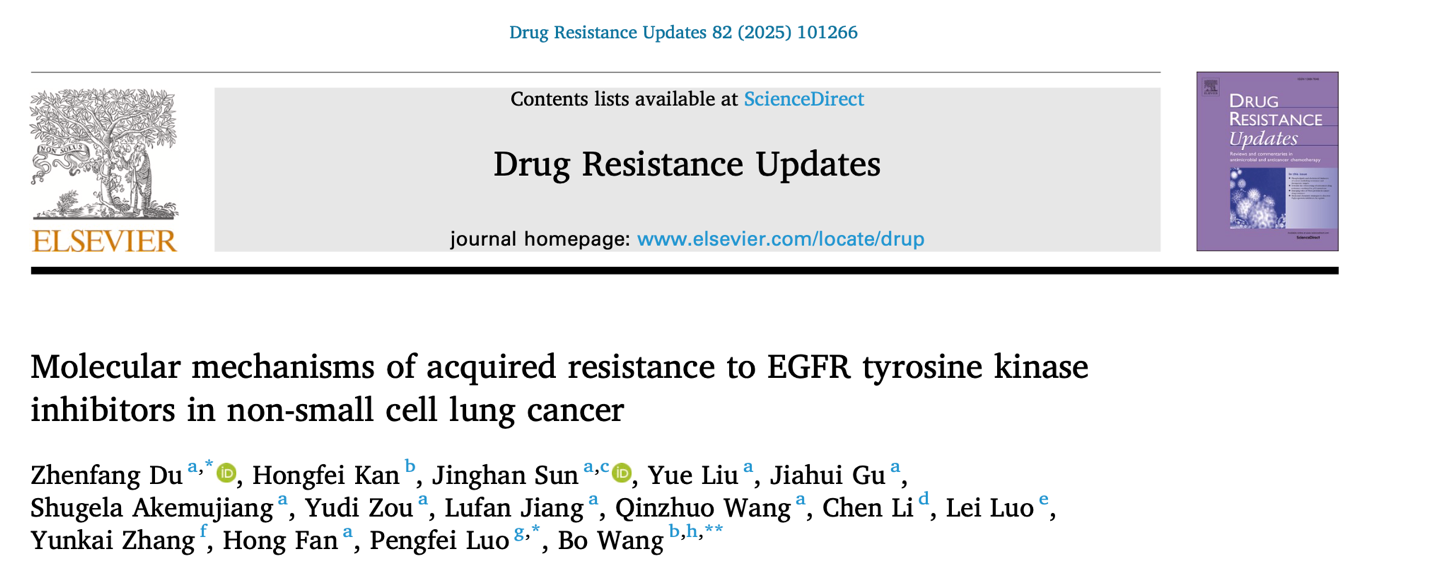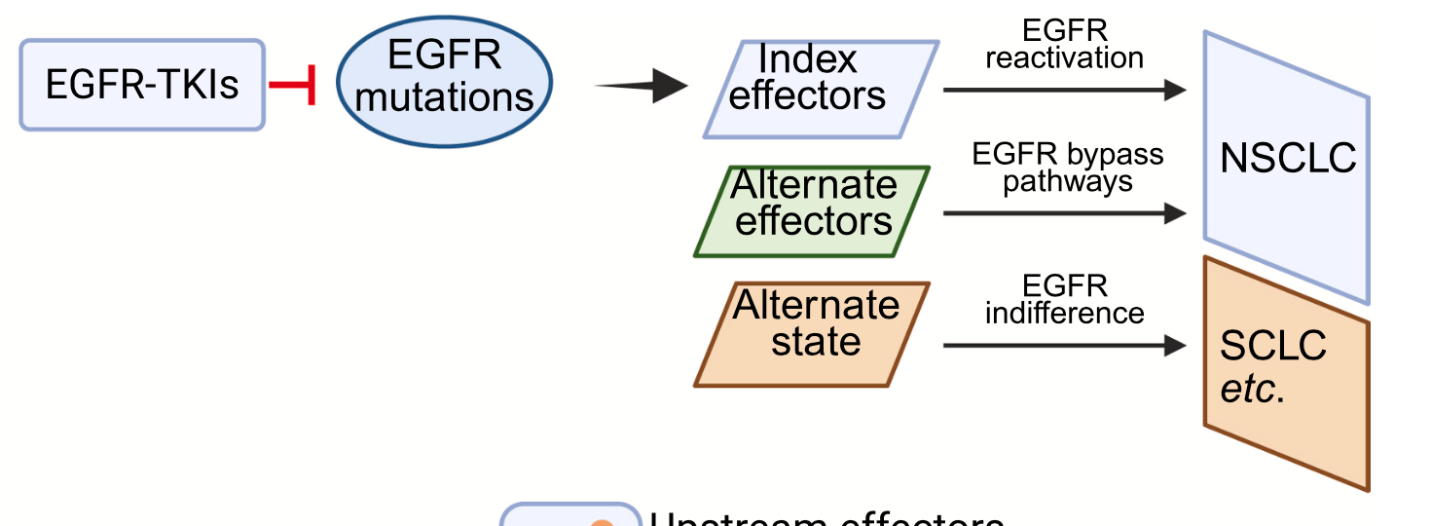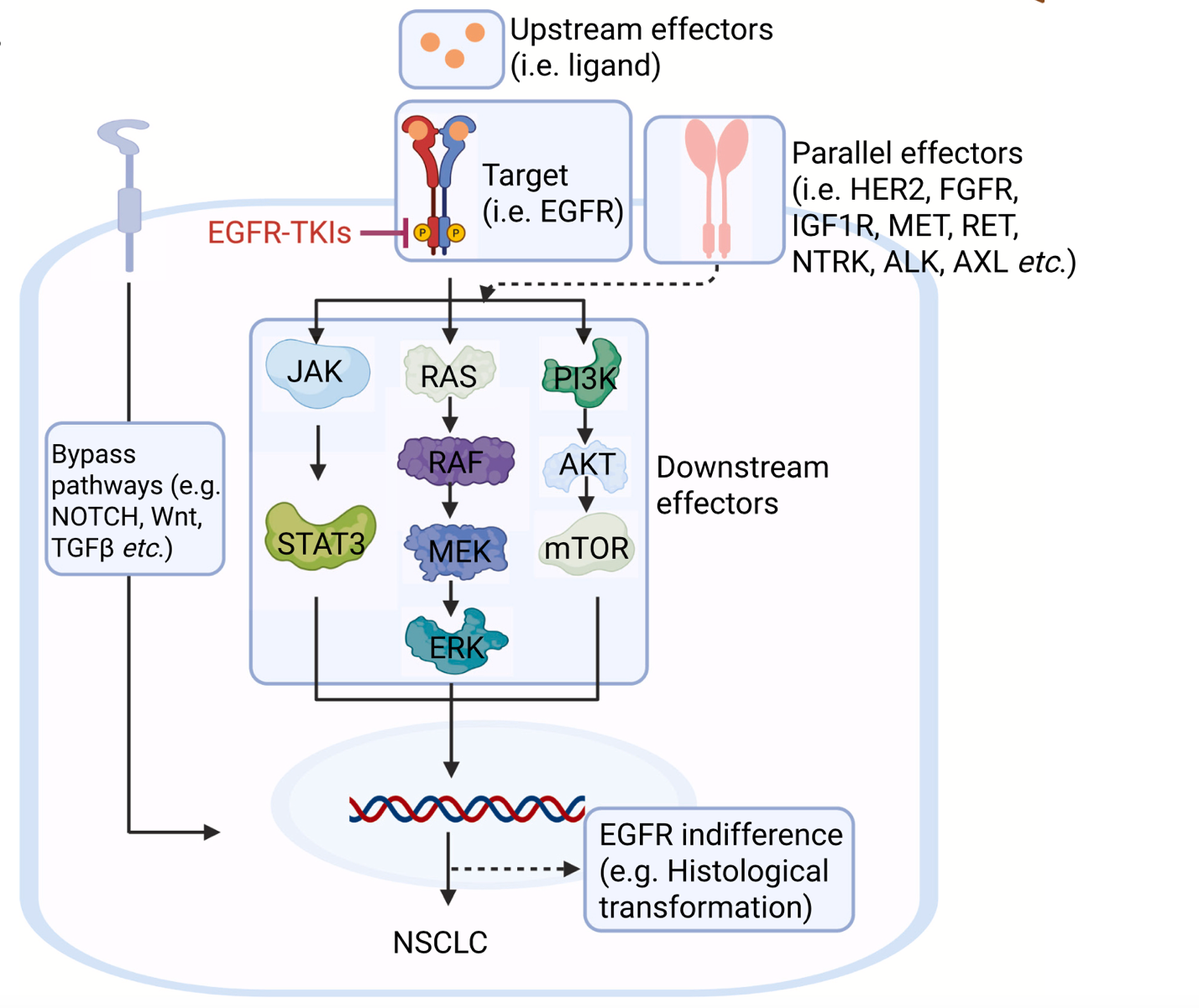Dr. Zhenfang Du group’s review paper entitled “Molecular mechanisms of acquired resistance to EGFR tyrosine kinase inhibitors in non-small cell lung cancer” has been published onDrug Resistance Updates(IF=15.8), a prestigious academic journal in biomedical field. This review comprehensively summarizes the recent progress on the identification and understanding of the acquired resistance mechanisms to EGFR tyrosine kinase inhibitors (TKIs) in patients with non-small cell lung cancer (NSCLC). The work also discussed the potential strategies to delay or overcome the acquired resistance.

Lung cancer is one type of cancer with the highest morbidity and mortality worldwide. Histologically, approximately 85% of lung cancer is non-small cell lung cancer (NSCLC) and 10%-15% is small cell lung cancer (SCLC). The identification of somatic activating mutations within the EGFR kinase domain and the subsequent development of targeted therapies, particularly small-molecule tyrosine kinase inhibitors (TKIs), have revolutionized therapeutic outcomes in EGFR-mutant NSCLC. Despite the initially favorable outcomes, these patients inevitably acquire resistance to EGFR-TKIs. The molecular mechanism of the acquired resistance is highly complex and heterogeneous. The work comprehensively summarized the resistance mechanisms and generalized them into three categories, including EGFR pathway reactivation (re-engagement of EGFR downstream), EGFR pathway bypass (adoption of a parallel pathway to re-engage the downstream transcriptional oncogenic output of the original EGFR), and EGFR pathway indifference (acquirement of a cellular state alternate to the original EGFR-driven output).

In this work, Dr. Zhenfang Du and his colleagues explained each of the resistance mechanisms in details. EGFR pathway reactivation is the re-engagement of EGFR downstream signaling through upstream, parallel and downstream effectors. EGFR pathway bypass adopts alternative pathway to bypass the already inhibited EGFR and transmit the signal to the downstream transcriptional oncogenic output of the original EGFR signaling. EGFR indifference is considered as an alternative cell state that is irrelevant to the original EGFR signaling. In each category, resistance leads to the sustained tumor progression of either the original NSCLC or alternate cell state such as SCLC. With the generalization and understanding of these mechanisms, the work also discussed the therapeutic strategies to overcome or delay the acquired resistance, which will be targeting EGFR signaling, bypass pathways and EGFR-indifferent state alone or in combination, with many under the evaluation of clinical trials.

Dr. Zhenfang Du from Department of Genetics and Developmental Biology, School of Medicine, Southeast University is the first author and correspondence of this work. Graduate student Hongfei Kan, Jinghan Sun and Yue Liu, and medical undergraduates Jiahui Gu, Shugela Akemujiang, Yudi Zou, Lufan Jiang and Qinzhuo Wang from Southeast University contribute to this work. Dr. Pengfei Luo from The Central Hospital of Yongzhou and Dr. Bo Wang from Nanjing University of Chinese Medicine are the co-correspondence of this work. This work is supported by the Fundamental Research Funds for the Central Universities (No. 2242022R10072), the Scientific Research Foundation for Youth Scholars of Southeast University (No. 1124007131), the National Natural Science Foundation of China (No. 82373717), the Jiangsu Specially-Appointed Professors Program (No. 01303802400) and Research Foundation of the Nanjing University of Chinese Medicine (No. 013038024001P).


